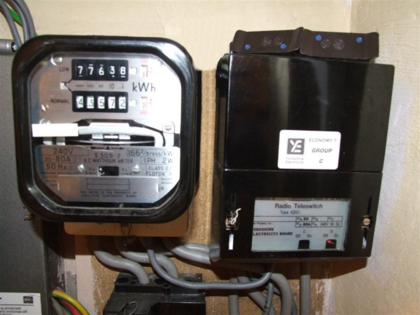Radio Teleswitch Service Switch Off: What it means for your business
Find out about the Radio Teleswitch Service switch-off and what it means for your business.

The Radio Teleswitch Service (RTS), which has been a critical part of energy management for certain metered customers, is being phased out. If your business relies on this system, it’s crucial to understand the changes and take action to avoid any disruption to your heating and hot water supply.
What is the RTS and why is it being turned off?
RTS has been around for decades, allowing energy suppliers to remotely control specific meters and tariffs using radio signals. However, as part of the UK’s energy modernisation efforts, the service will be switched off on 30th June 2025. This means RTS-dependent meters will no longer receive remote updates, potentially causing billing and operational issues.
How it impacts your business
If your business uses an RTS-enabled meter, you may experience the following issues:
- Loss of remote switching capability – Your meter will no longer switch between peak and off-peak tariffs automatically.
- Billing inconsistencies – Without remote updates, you may not be charged correctly for your energy usage.
- Potential supply disruptions – Some heating and hot water systems rely on RTS switching, which could affect their functionality.
How to identify an RTS meter
To find out if your business has an RTS meter, start by looking for a large black box near your electricity meter—this is usually the RTS equipment. You can also check if your meter automatically switches between peak and off-peak rates or if your heating and hot water turn on at set times, controlled remotely by your energy provider. If your business relies heavily on electric or storage heaters for heating, there’s a good chance you’re using RTS.
Moving from RTS to a smart meter
Upgrading to a smart meter is the only technical replacement for RTS meters and will prevent any disruptions and provide a seamless transition. A smart meter ensures real-time data, automated meter readings, and more flexible tariff options, delivering a similar service with added benefits.
With the RTS turn-off approaching, acting early will help minimise disruption to your operations. Upgrading to modern metering solutions not only keeps your business running smoothly but also enhances energy insights, efficiency, and cost savings.
To schedule your smart meter exchange, you can contact Energy Assets directly on 01506 405445 (Mon-Fri, 8:30 am–5:00 pm) or request a callback here. Alternatively, we’ll be in contact with you shortly to arrange your meter exchange.
To help you navigate the transition, we’ve put together a detailed FAQ section. Here, you’ll find answers to common questions about RTS, its impact, and how switching to a smart meter benefits your business.
Frequently asked questions
What is the RTS and why is it being turned off?
RTS has been around for decades, allowing energy suppliers to remotely control specific meters and tariffs using radio signals. However, as part of the UK’s energy modernisation efforts, the service will be switched off on 30th June 2025. This means RTS-dependent meters will no longer receive remote updates, potentially causing billing and operational issues.
When will RTS be switched off?
RTS has been around for decades, however, as part of the UK’s energy modernisation efforts, the service will be switched off on 30th June 2025.
How will the RTS turn-off affect my business?
If your business uses an RTS meter, you may experience issues such as loss of remote switching, billing inconsistencies, and potential supply disruptions for heating and hot water systems that rely on RTS switching.
How can I tell if my business has an RTS meter?
Look for a large black box near your electricity meter, which is usually the RTS equipment. If your meter automatically switches between peak and off-peak rates or your heating and hot water turn on at specific times controlled remotely, you likely have an RTS meter.
What are the benefits of upgrading to a smart meter?
A smart meter offers real-time data, automated readings, and more flexible tariff options. Upgrading will, ensure accurate billing, and provide your business with better energy insights, efficiency, and cost savings.
When should I upgrade to a smart meter?
With the RTS turn-off scheduled for 30th June 2025, we recommend upgrading to a smart meter as soon as possible to avoid disruptions and ensure continuous service.
What happens if RTS meters aren’t upgraded?
Without an upgrade, your heating and hot water systems may be affected, with issues like incorrect timing or continuous operation. Billing could also become inaccurate, leading to higher costs. Upgrading to a smart meter will provide similar service while ensuring accurate billing.
What happens if my business relies on RTS for heating or hot water?
Without RTS, your heating and hot water systems may not function as expected. Upgrading to a smart meter will eliminate this risk and provide continued control over your energy usage.
How do I switch from an RTS meter to a smart meter?
If you are a SmartestEnergy Business customer and we identify you have an RTS meter, we will contact you to arrange a meter exchange. Our team will guide you through the process and ensure a smooth transition.
How does RTS equipment receive updates?
RTS equipment receives updates via Longwave radio, which is being phased out. Once the transmission ends, RTS will no longer work, so it's important to upgrade to a smart meter to avoid disruptions.
What will happen to my off-peak hours with a smart meter?
Off-peak hours may shift slightly, usually by 15 minutes. For example, if your off-peak hours are 00:15 - 07:15, they could change to 00:30 - 07:30. The exact timing may vary depending on your location.





